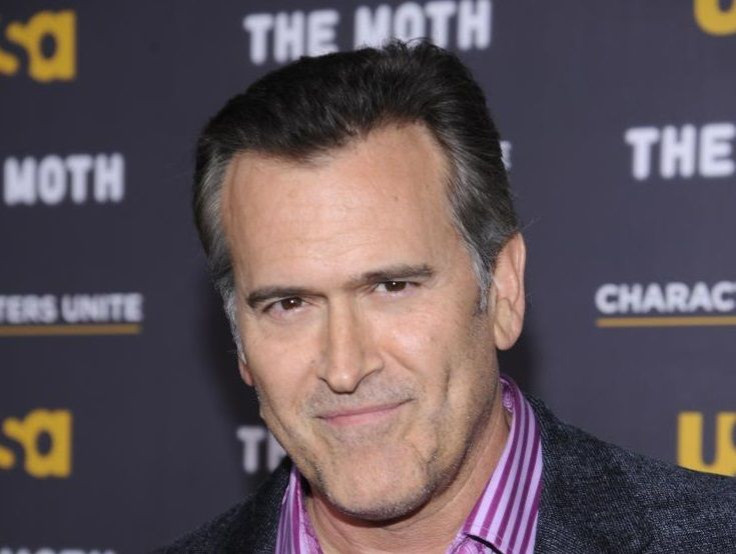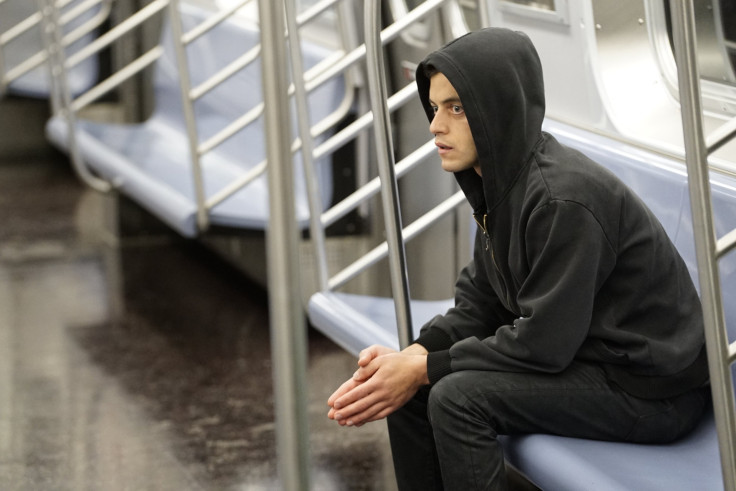Starz Renews ‘Ash vs. Evil Dead’ Before Series Premiere In Latest Example Of ‘Early Renewal’ Fever
Even before their shows premiere, TV creators love to talk about long-term plans: five, six, seven seasons of story lines; character arcs that will only achieve their end in Season 3. The best-laid plans of mice and producers, though, often go awry in the fickle business of television, and many of these aspirations go unrealized when underperforming series are yanked from the schedule or go quietly “unrenewed” at the end of their seasons.
But the TV business might be getting a little less brutal for those on the creative side, with a rising number of networks issuing early renewals for series, often before their first episodes even air. Most recently, Starz’s highly anticipated gore fest “Ash vs. Evil Dead” (starring Bruce Campbell of the “Evil Dead” film franchise) was approved for Season 2 days before its Oct. 31 debut. In other words, Starz is giving it a preemptive second-season greenlight before anyone’s even seen it.

As with many current programming trends, this one is driven by Netflix. It's a subscription video-on-demand service, so the company doesn’t need to see how a show performs in order to deem another season a necessary investment. Netflix is in the business of attracting subscribers, and it makes little difference to the company when its users watch content. In order to lure “House of Cards” creator Beau Willimon, executive producer David Fincher and star Kevin Spacey away from the tantalizing offers of bidders like HBO and AMC back in 2011, Netflix chief content officer Ted Sarandos promised the “Cards” crew two 13-episode seasons for around $100 million. Netflix has since given early renewals to most of its original productions, including prison dramedy “Orange Is the New Black.”
That same reliance on a subscription base has allowed premium cable channel Starz to champion the strategy as well, with the network often ordering new seasons months before a show's premiere, as it did with the pirate drama “Black Sails” (now entering its third season), or right around its premiere, as it did with “Evil Dead” and “DaVinci’s Demons,” very loosely based on Leonardo’s life. Fellow pay-TV channel HBO has also begun making early renewals a habit, renewing “Girls” for Season 5 days before Season 4 began.
Trickle-Down Effect
Basic cable is getting in on the early action, too, with FX ordering two more seasons of the animated comedy “Archer” at once in 2014, and USA issuing a Season 2 renewal for its stellar hacker drama “Mr. Robot” hours before it officially premiered in June. USA made “Robot” available via VOD and on a plethora of digital platforms a good month before it premiered on the channel, and the response, according to executive vice president of original programming Jackie de Crinis, made the pre-renewal instinctive, despite there being no precedent for such a move.
"We knew we had something special," de Crinis told International Business Times. "We had this incredible groundswell of support after the digital launch that gave us this boost of confidence in addition to our own gut feeling.”

The early release and renewal for "Robot" was crucial for the network to start to move away from its lighter “Blue Skies” persona, but "pre-newals" are also a way for programmers to signal faith in a show that might not immediately attract a large audience. For decades, fans have accused networks of having an itchy trigger finger, and the fans weren’t wrong. That quick-draw attitude, however, may be changing, at least on cable.
“We had talked quite a bit within USA about other networks that had picked up second seasons right around premiere, and the confidence that showed to the audience,” de Crinis said. “The message that sends is: ‘We love it so much, we’re going to double down.’”
For broadcasters ABC, CBS, NBC and Fox, who have more programming hours to fill with original content, the opportunity cost associated with a duffer is high. Once a show has proven itself a solid performer, like “Bob’s Burgers” on Fox, then a double order is more likely. (Fox did, indeed, greenlight two more seasons of “Bob’s” on Oct. 7.)
Leverage Is Shifting
And at a time when there’s a veritable smorgasbord of platforms to which content-makers can shop their goods, attracting and keeping big-name talent is becoming more competitive, insiders say. Amazon signed a deal with Woody Allen in January for the writer-director to make six episodes of whatever kind of half-hour show he wanted for them, and the company guaranteed all six would run on its Prime service. Sources indicate that executives at certain networks are letting high-profile producers off the leash -- giving fewer notes (or none at all), being flexible on episode length or number of episodes -- in an attempt to be perceived as a cooler network everyone wants to work for.
It's an effective strategy, according to producers we've spoken to. Early renewals are even better, according to common consensus, since they relieve the stress of having to wake up every day and look at overnight ratings, then field calls from concerned executives who want to nudge story lines in a different direction; they're a sign of good faith that allows producers to tell the stories they want to tell in a set amount of time. Given a choice between a higher-episode budget but a less certain episode order and a lower budget for a guaranteed number of episodes or seasons, many writers and directors find the latter option more attractive.
Early renewals are a strategy that’s easier to execute on a streaming service or cable, where there's less dependency on revenue from advertisers (and, thus, ratings). NBC discovered this the hard way with the summer dud “Aquarius.” The David Duchovny-led ‘60s crime drama about the rise of Charles Manson earned a second-season pick-up a month into its run on Thursday nights, only to find itself shunted off to the Siberia of Saturday night two weeks later, where ratings cratered -- not exactly an indication the network actually wants Season 2 to see the light of the tube.
Even for a premium programmer like HBO, an early renewal can be followed by a preemptive canning. The channel renewed Jack Black/Tim Robbins-fronted comedy “The Brink” for a second season in July, a month into the show’s run, only to cancel it abruptly Oct. 27.
“We’re definitely looking at that kind of early renewal on a case-by-case basis,” de Crinis said. “This isn’t exactly the new normal.” At least not yet.
© Copyright IBTimes 2024. All rights reserved.












